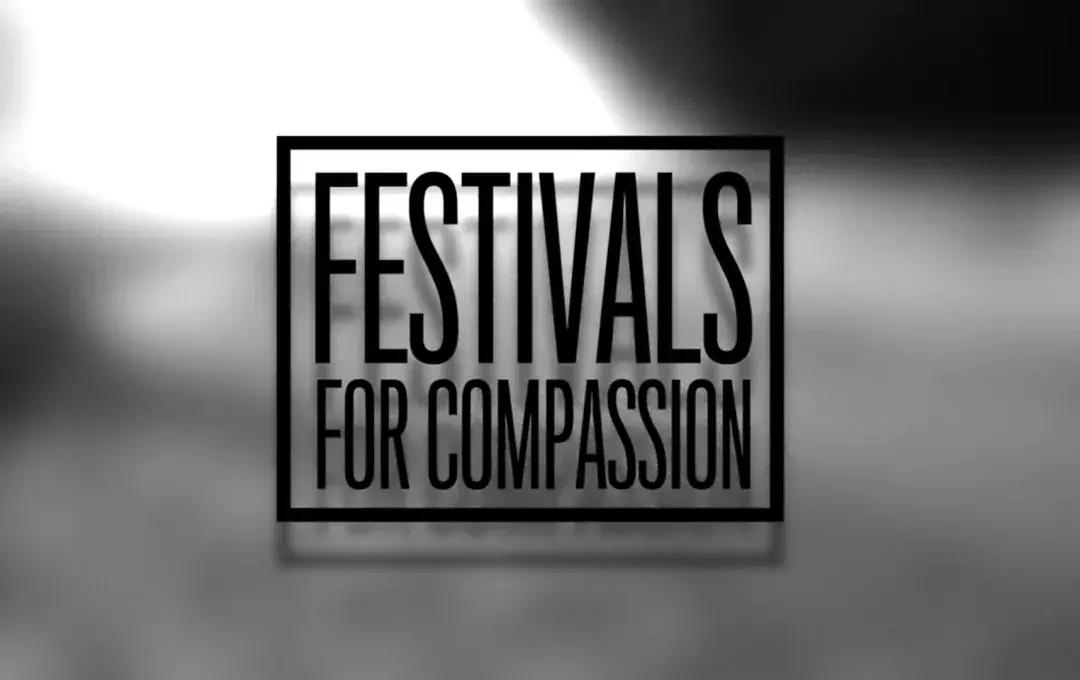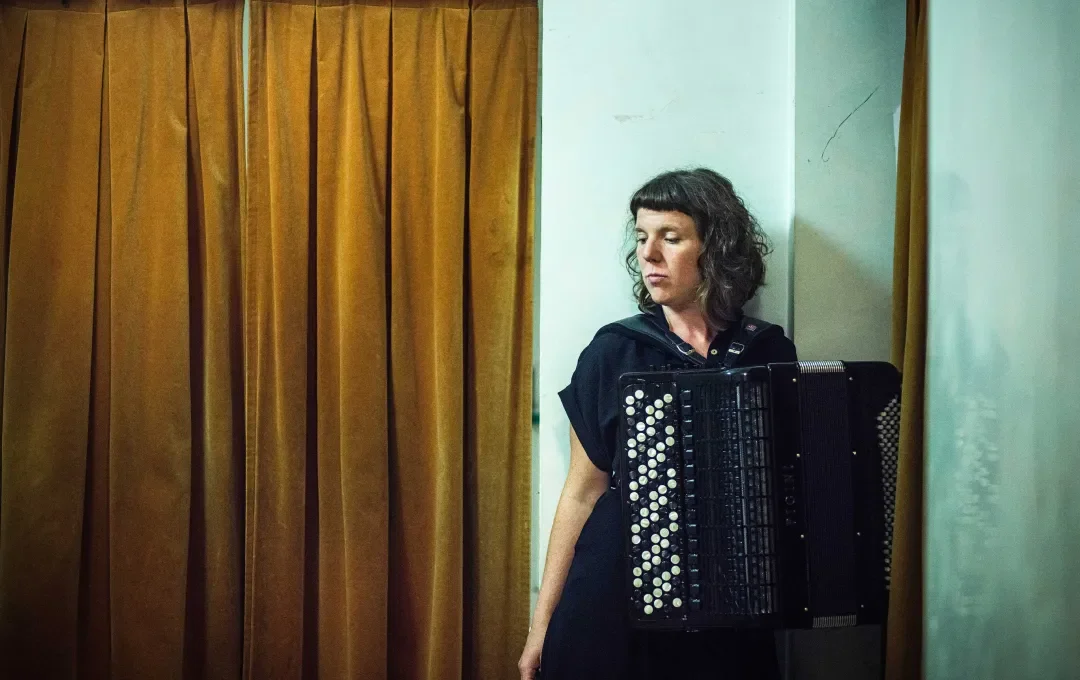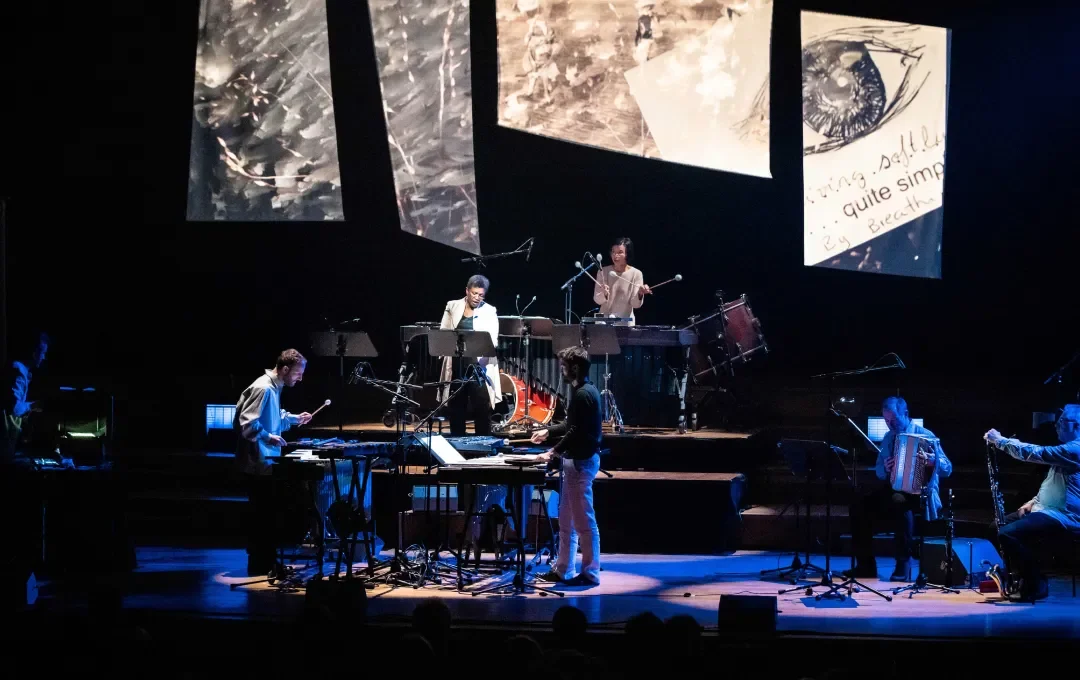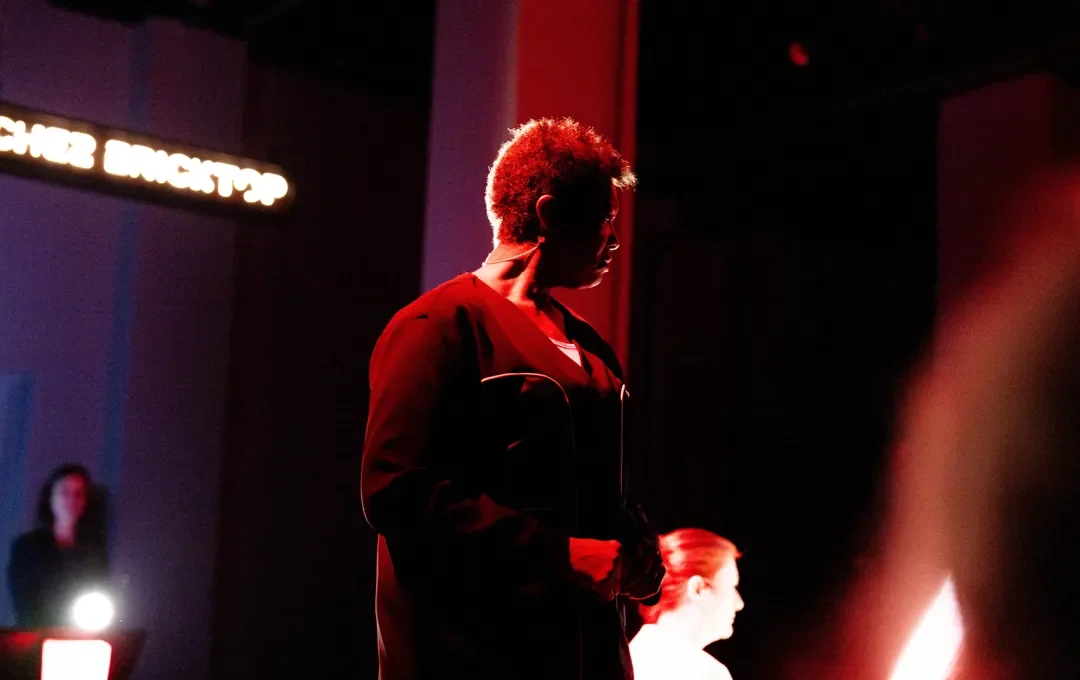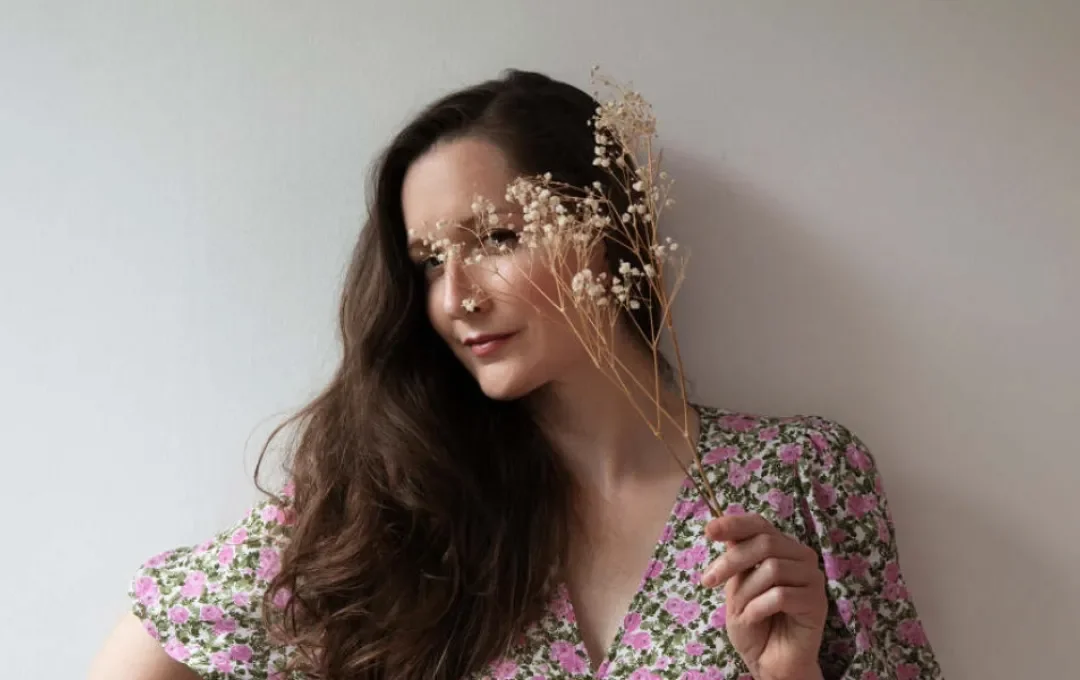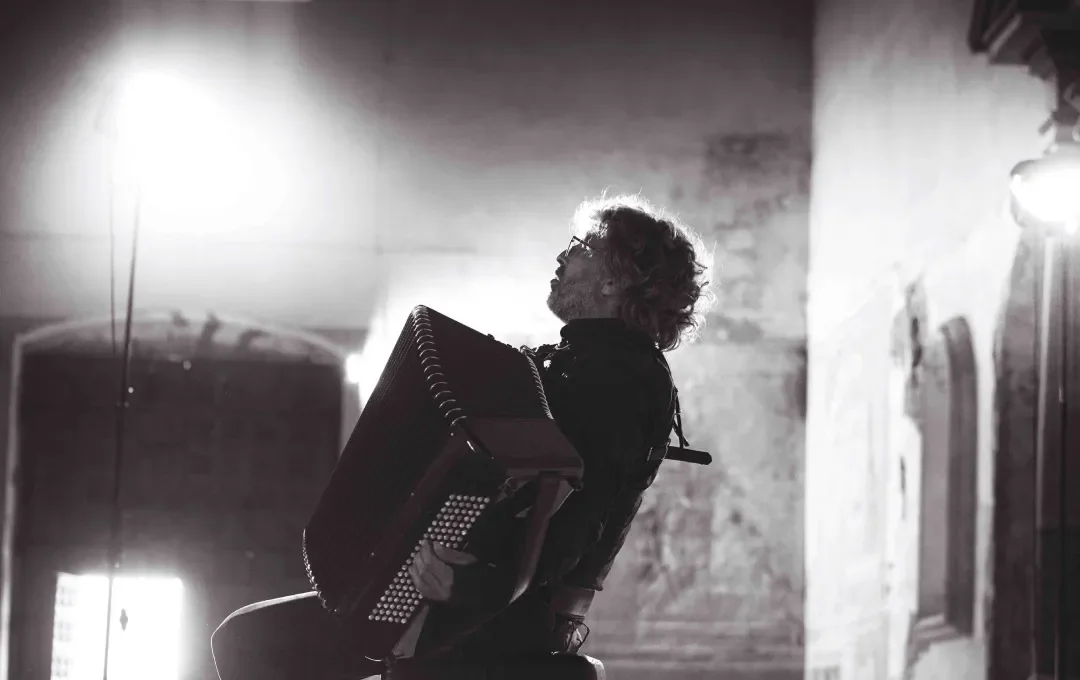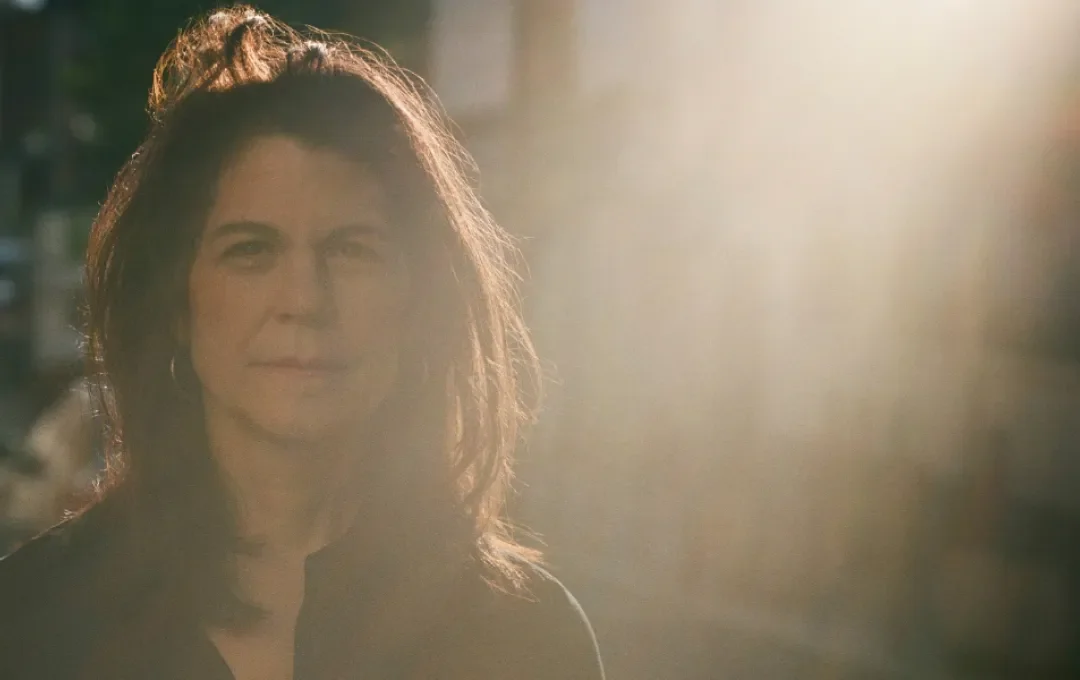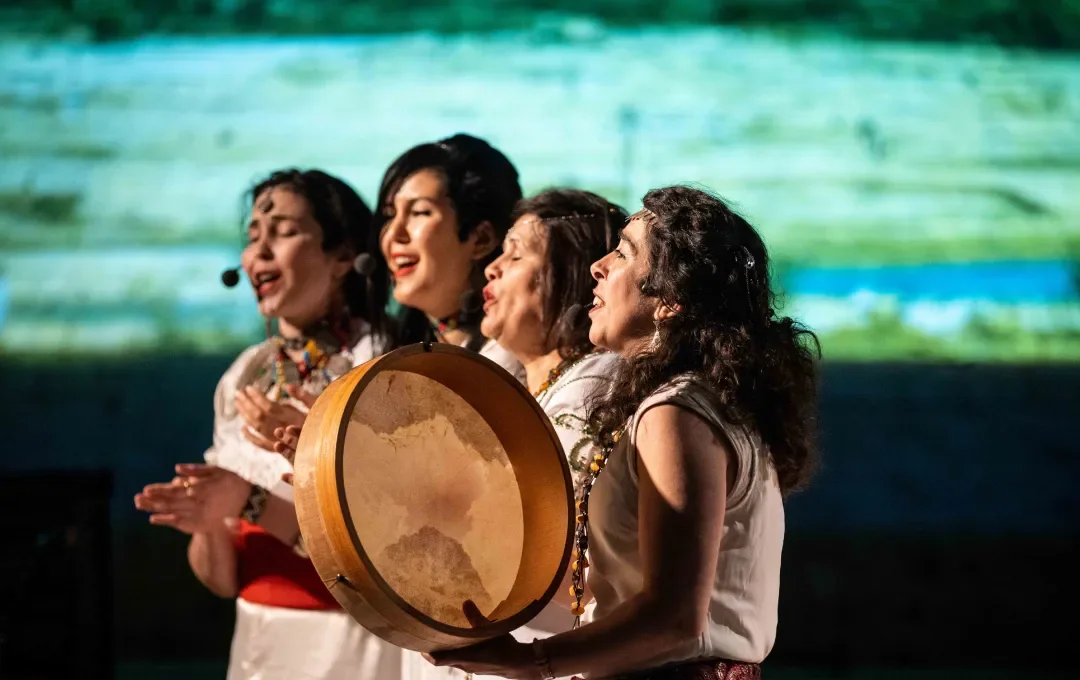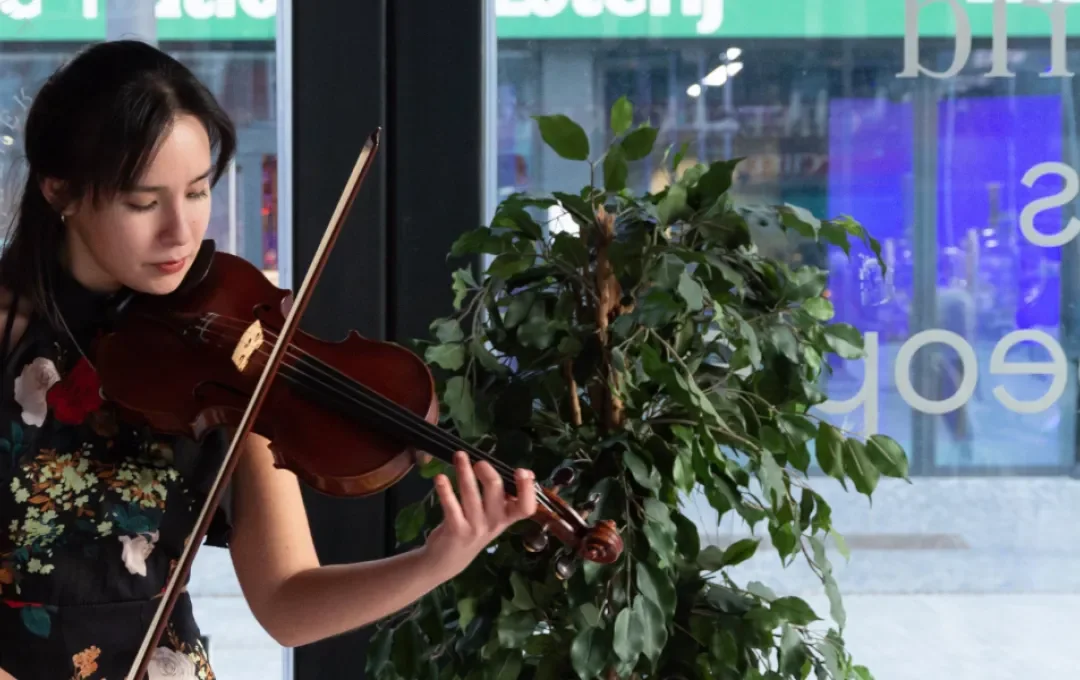
interview with jonathan brown
a model for positive dialogue
The Cuarteto Casals, formed in Madrid in 1997, has become one of the best-known string quartets in the world today. In a series of six concerts at Klarafestival 2020 they will perform the complete Beethoven string quartets along with a number of contemporary compositions. An interview with Jonathan Brown, violist with the Cuarteto Casals.
Mien Bogaert: The name Cuarteto Casals is a reference to the renowned Catalan cellist Pablo Casals. Why is he so important to you?
Jonathan Brown: Pablo Casals represents certain values that we aim to uphold ourselves. In a musical context, this means honesty and a direct connection with the audience. However, we also admire his humanist outlook, his dedication to human rights, his political values and ultimately, his stubbornness too. After we formed the quartet we met his widow, Marta Casals Istomin. A beautiful friendship has since developed. We are very proud to be able to use Pablo Casals’ name!
Mien Bogaert: At Klarafestival 2020 you’ll be playing all of Beethoven’s string quartets across six concerts. But not in chronological order.
Jonathan Brown: Indeed, as that would only be of interest to those people who attend the entire cycle. However, we want the people who only come to one or two concerts to hear a varied programme too. So each of the six concerts includes an early-, middle- and/or late-period Beethoven string quartet. We’ve done our best to come up with an overarching theme for each concert: the fugue as musical form, the theme with variations, the relationship between the E and F tonalities... and then we examine how Beethoven worked with each theme in his various periods. The new pieces we have written – one for each concert – are responses to specific string quartets.
Mien Bogaert: You’re releasing a recording of Beethoven’s complete string quartets on three CDs on the Harmonia Mundi label. Does this recording process influence your live concerts?
Jonathan Brown: Only by recording music and listening to yourself constantly do you really get the chance to refine your own interpretation. When you’re getting down to the nuts and bolts, no detail escapes your attention. The recording of the cycle is now complete. It’s made our live interpretations tighter, more compact, more fluid and less indulgent, but on the other hand – I don’t want to say less spontaneous, because we work hard to maintain that aspect – there’s also less room for error.
Mien Bogaert: You’re from America yourself, have studied at both the Juilliard School in New York and the Mozarteum in Salzburg and have been a member of the quartet since 2002. What was the selection process like?
Jonathan Brown: While I was studying in Salzburg I received a phone call from the Cuarteto Casals to say they were looking for a new viola player. We knew each other through Rainer Schmidt, the second violinist with the Hagen Quartett, who taught me and the Cuarteto Casals. Some quartets use highly complex auditioning methods – with endless Excel tables quoting different aspects of your playing. In contrast, in our case it simply clicked immediately. We met in Cologne, played together for 45 minutes, and they asked me during the break if I’d like to be a member of the quartet. I agreed, we rehearsed a bit more and then we started to plan concerts. Although the first year was anything but easy (I had to learn 45 string quartets), I can’t imagine not being part of the Cuarteto Casals now. In fact, there are not many quartets who have maintained the same configuration for as long as we have: almost 18 years.
Mien Bogaert: Stravinsky said that Beethoven’s late string quartets – in particular the Große Fuge – will continue to be modern for all eternity. Where does this enthusiasm come from?
Jonathan Brown: Beethoven clearly composed his first six string quartets, opus 18, in the tradition of Haydn and Mozart. You can hear the seeds of what is to come, but even so these works are clearly based on an 18th-century model, Five years later, Beethoven wrote the Razumovsky quartets, opus 59, and they are a world apart. Like the Third, Fourth and Fifth Symphonies, the Razumovsky quartets are monumental, overpowering compositions. Then there is the fantastic opus 74, and opus 95 which Beethoven wrote for connoisseurs. At the end of his life, following the Ninth Symphony, the Missa solemnis and his late piano sonatas, Beethoven composed what is referred to as his late string quartets, and those compositions – opus 127, 130, 131, 132, 133 and 135 – are unparalleled. Spectacular, monumental, almost symphonic passages alternate with the sweetest, tenderest, fondest moments in the history of music. The incredible thing about Beethoven’s late string quartets is that they evoke such an amazing range of human emotions and experiences with only four string instruments – no brass, no conductor and no singers. No one has been able to match that to this day.
Mien Bogaert: Beethoven’s string quartets will dialogue with several contemporary compositions for string quartet, which you commissioned. How did you select the composers?
Jonathan Brown: We aimed stylistically for the broadest possible response to Beethoven’s string quartets. Lucio Franco Amanti and Giovanni Sollima, for example, wrote jazz-influenced, very accessible and humorous music – without being superficial – while at the other end of the spectrum Aureliano Cattaneo and Benet Casablanca composed music that was headstrong in the best sense of the word, and which you really had to concentrate on. Some of these composers were friends; others were people we admired, while others again were recommended to us by the venues we worked with.
Mien Bogaert: The Cuarteto Casals sound – which is praised in just about every review – is due in part to the instruments and bows you use. How do you achieve that?
Jonathan Brown: The ideal sound for us is the way a quartet would have sounded in Beethoven’s time. Or how we think it would have sounded. On the basis of the information available, we try to approach that ideal. We used to experiment a lot, years ago, for example with catgut strings. But, because we play such a mixed programme – Beethoven and contemporary music – and because we have to retune quickly, catgut was not an option in the end. So we went looking for strings that could approximate the sound of catgut but also sound modern. We’re always really pleased if musicians in the audience ask us if we are using catgut strings. Our sound is also largely determined by our use of historical bows. This doesn’t mean that we use bows from the 18th century but that they have been made in exactly the same way, using exactly the same materials.
Mien Bogaert: Beethoven’s relationship with the political situation of his time is the stuff of legend: in a short space of time his admiration for Napoleon turned into utter contempt. You could even associate the sudden sonic eruptions in the string quartets of his middle period with the bombardment of Vienna in 1809.
Jonathan Brown: Indeed. On the other hand – and this is a nice quote from Beethoven, which I read in the fall of 2017 – he once wrote to a friend: “I will not talk about kings and their empires: there is enough in the newspapers about that. What I prefer instead is the empire of the mind.” It seemed remarkable to us that in 2017, during such a tense, chaotic and difficult situation, our string quartets were very warmly received – as if people genuinely needed them amid the turmoil. What we hope is that the string quartets we perform can serve as a model for positive dialogue: a way of living together that respects every voice and holds cooperation in high regard.
